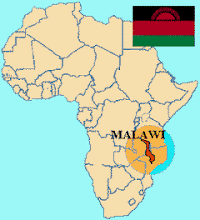.JPG)
Not wanting to sit idle while I waited for work to begin, I set out on the streets of Lilongwe to practice my Chichewa (the local language) and do some research on how the local markets function. Malawians are tremendously friendly people and literally almost everyone I pass is keen to assist with directions, greetings, and getting me on the fast track to fluency in Chichewa. Whether or not I ever get there is a different story but the journey is always accompanied by new friends and lots of laughter. For those of you playing along at home, I've set up a Chichewa word-of-the-week quiz! Pang'ono pang'ono mudzalakhula Chichewa!
Markets are the bustling epicentre of the city and how they work defines the livelihoods of much of the urban population. However, they are only the end of a longer chain of interactions and processes that stretch all the way back to the producers and their livelihoods. These Value Chains have become the focus of much attention in poverty alleviation strategies. By supporting and strengthening existing value chains, or pioneering new branches of existing ones, organizations have tremendous potential to have significant and sustainable impact. A strong value chain for any product can mean increased stability and opportunity for the rural poor.
Value chains are tremendously complex systems and I still have much to learn. I spent a few days visiting different markets, warehouses, and mills around Lilongwe learning about rice, fish, and potato value chains. All of the information on transportation, costs, value added by processing, and storage, provide valuable insight into how value chains function for some of the major commodities in Malawi. But the urban environment only shows one end of the value chain and the cassava flour market is still in comparative infancy. On Monday I will be heading north to visit a cassava flour producer for two weeks to learn about the rural beginning of the value chain for cassava and look for opportunities to strengthen the links in the chain.



